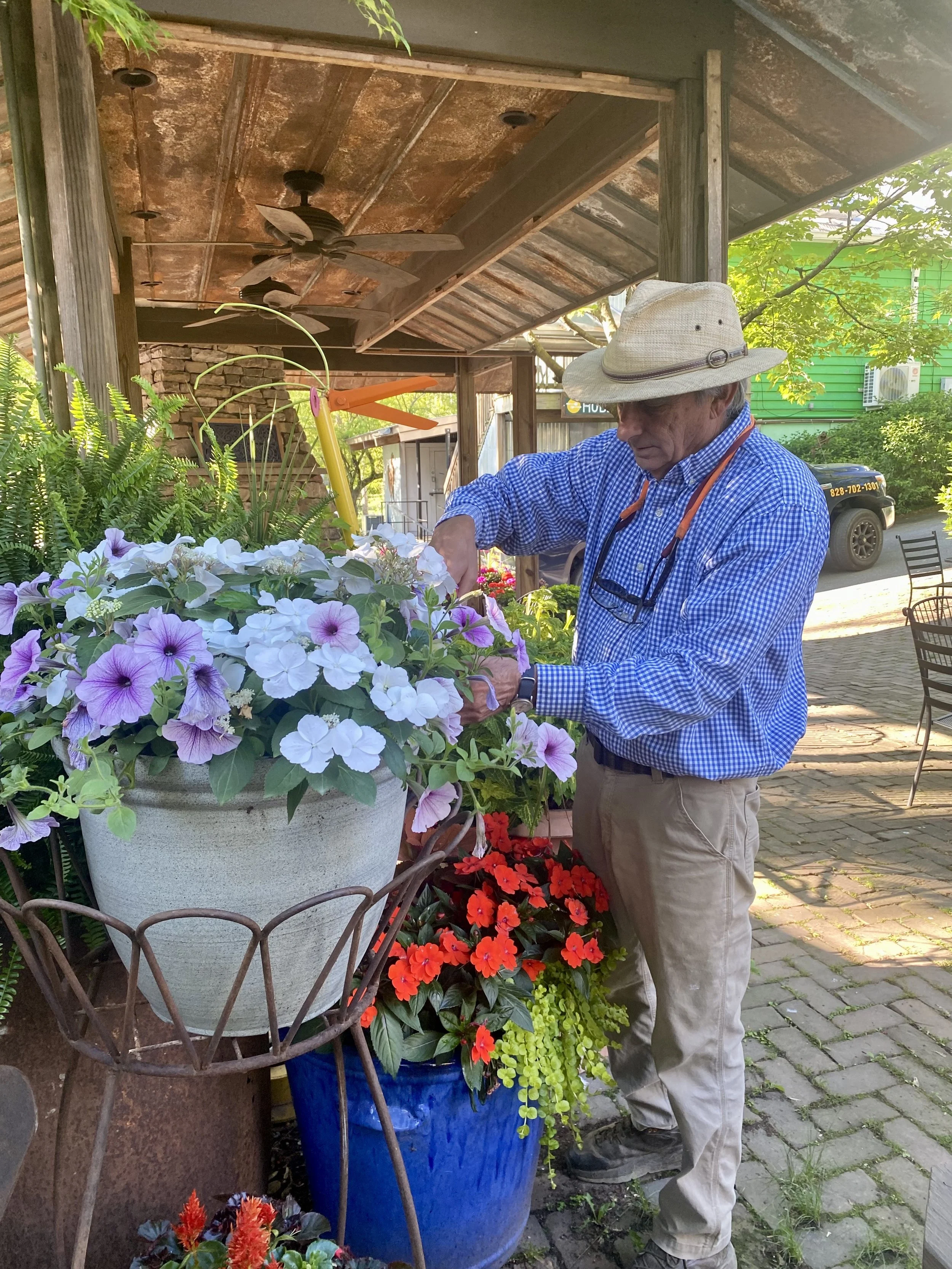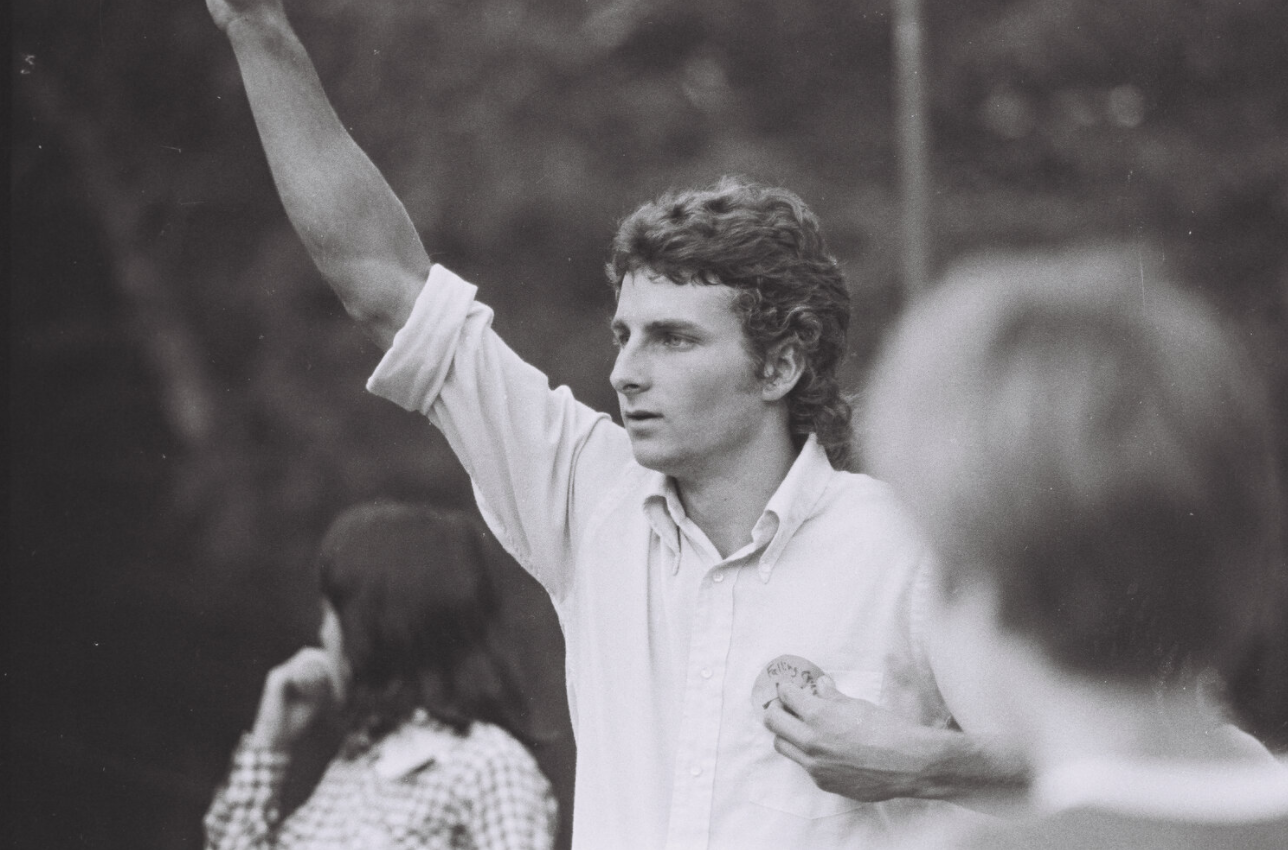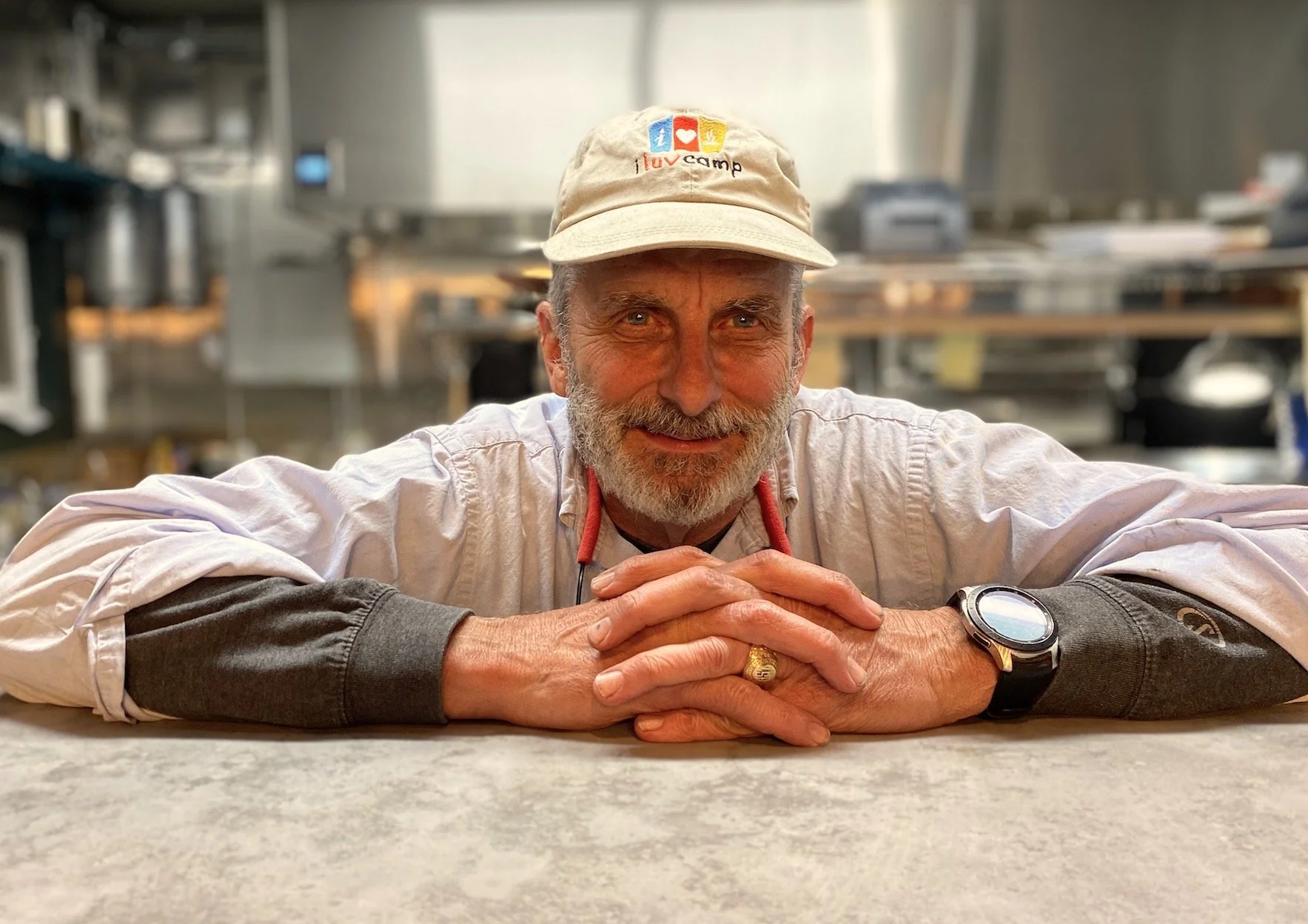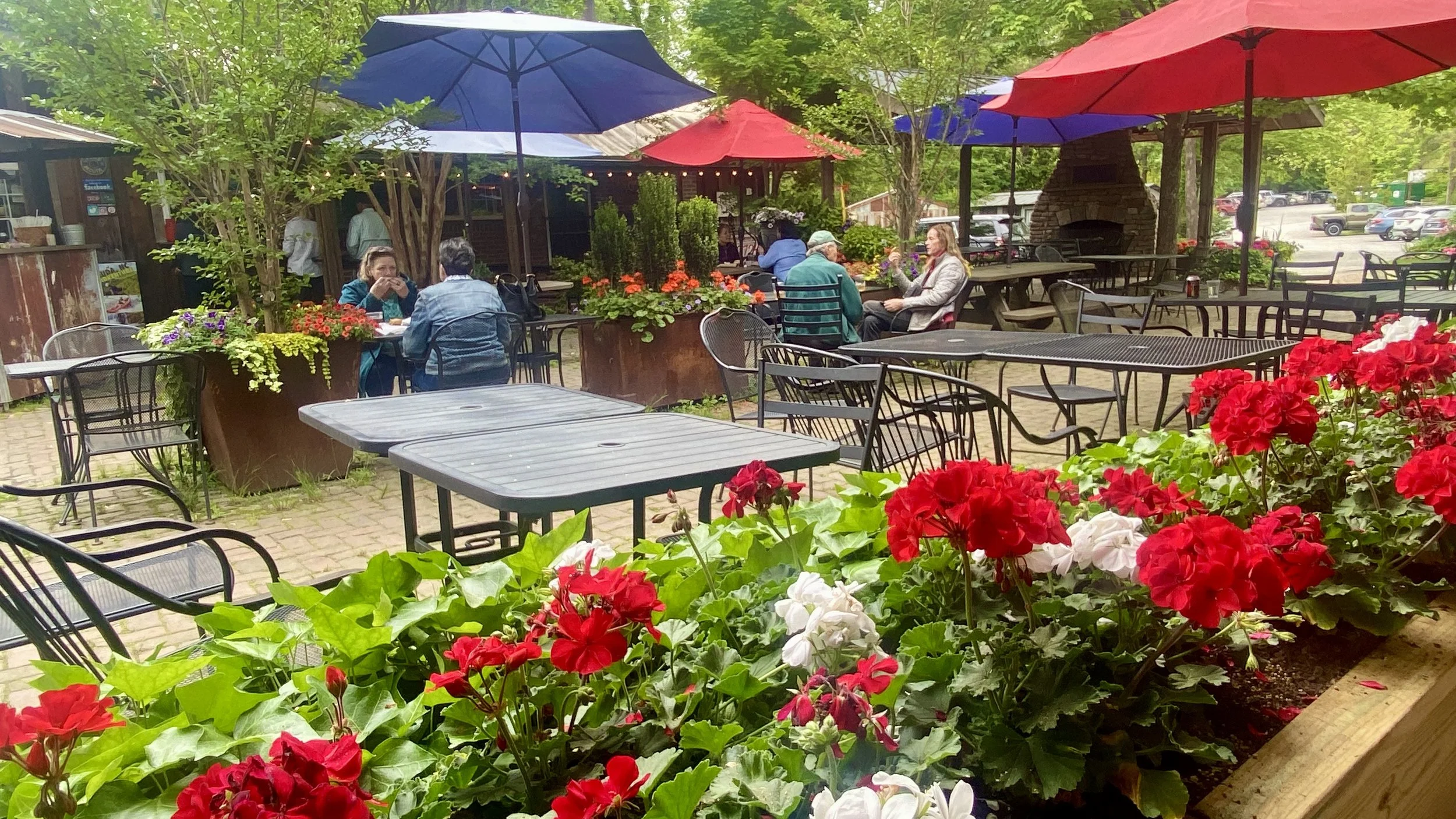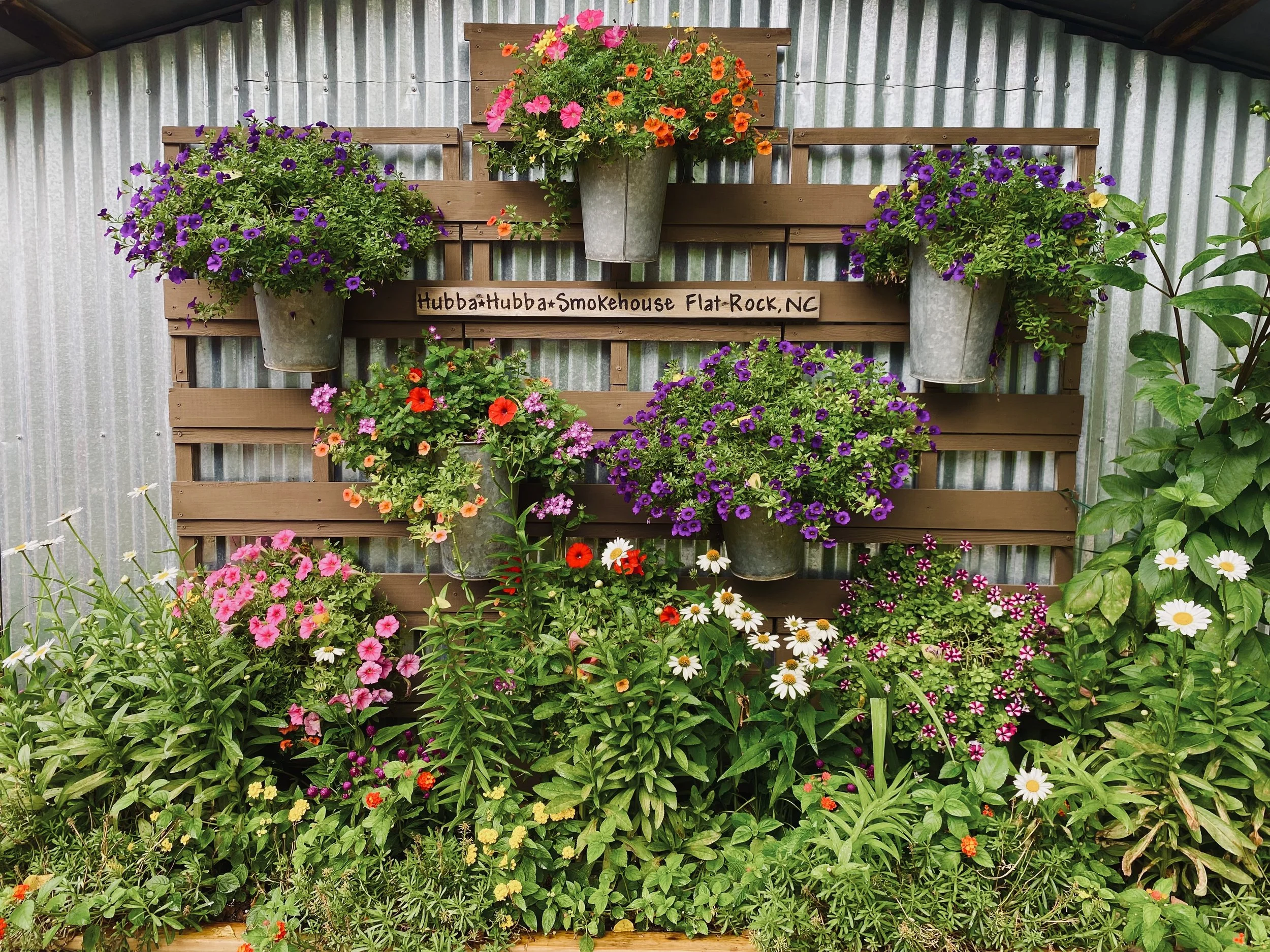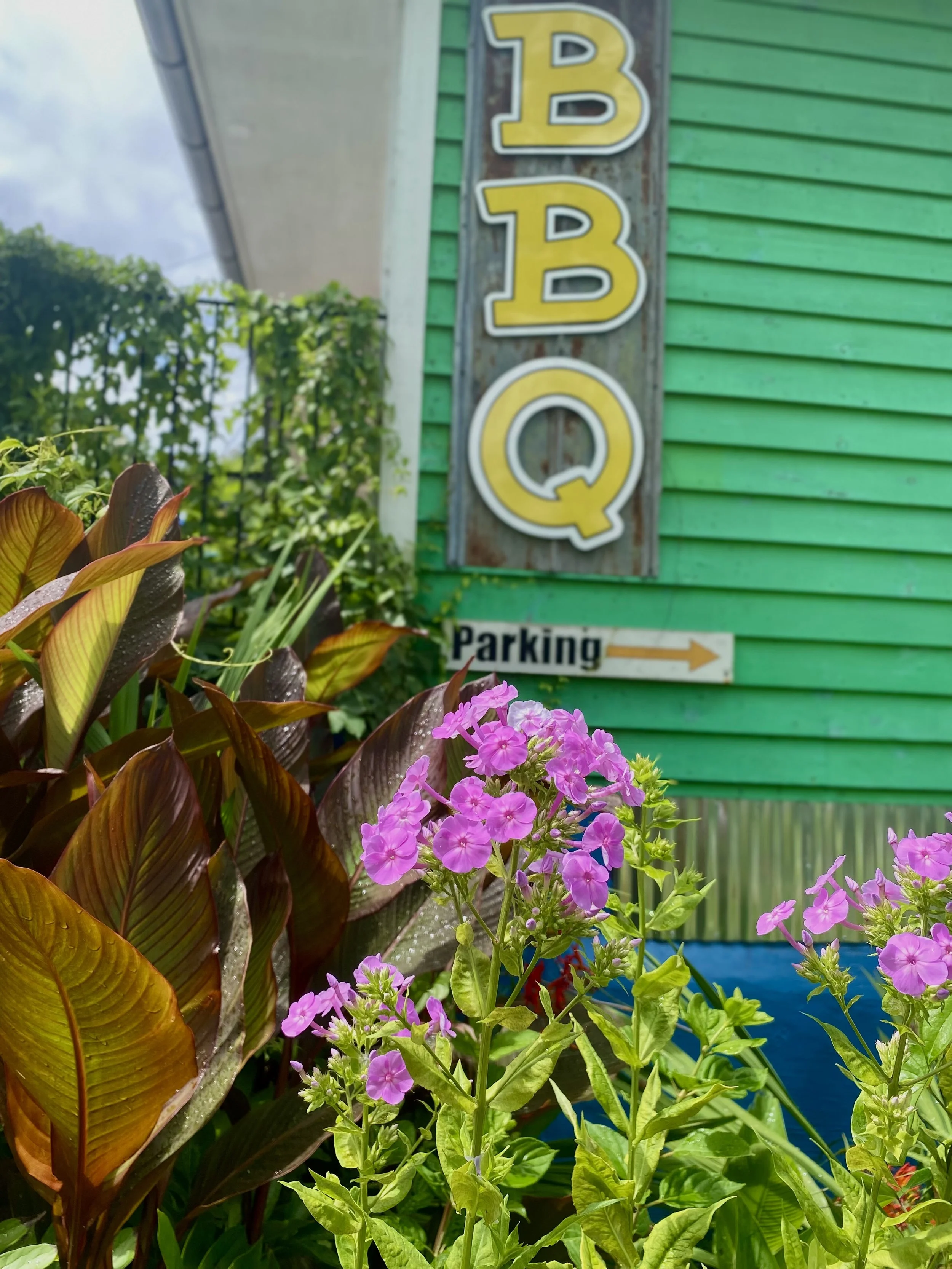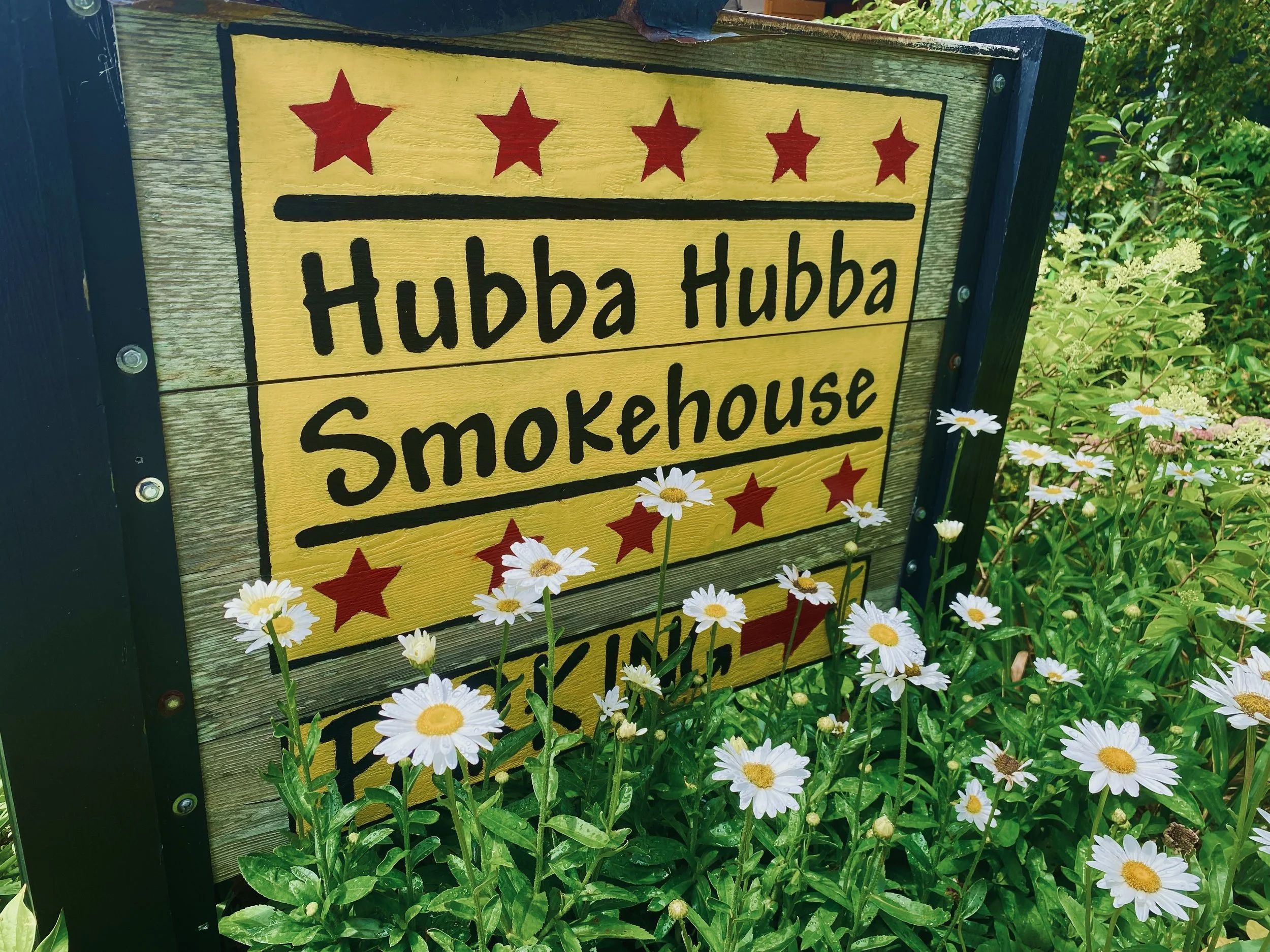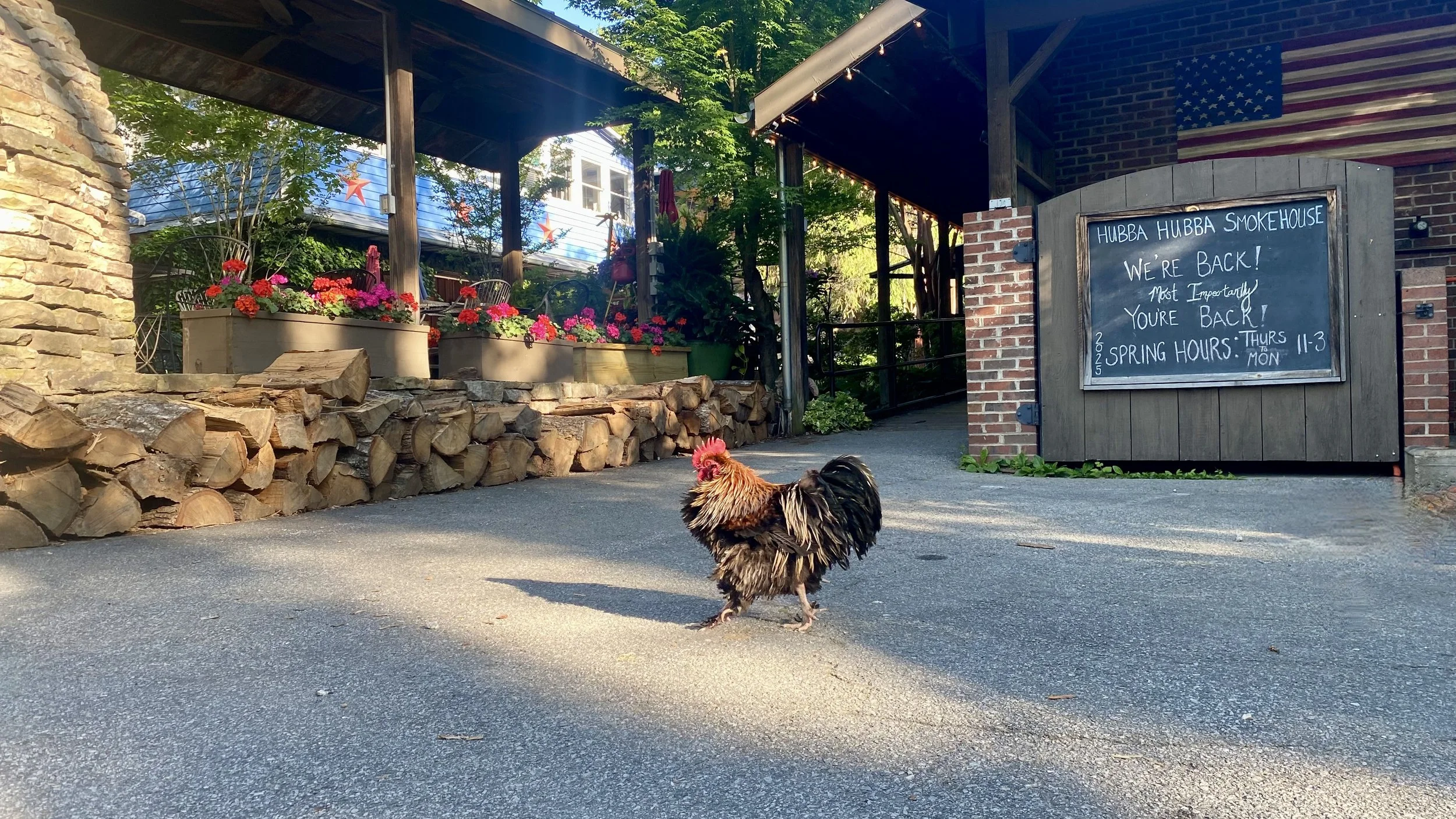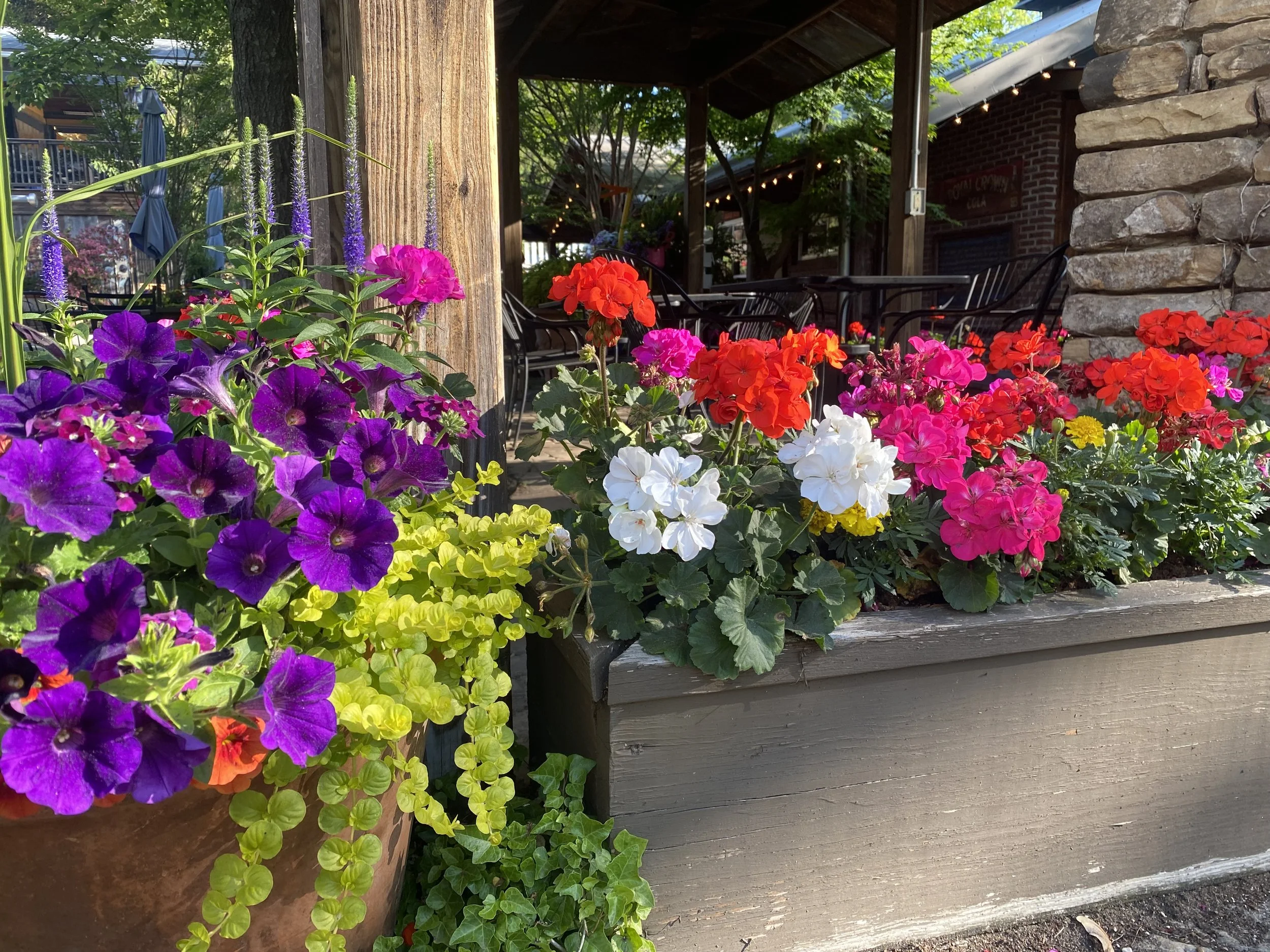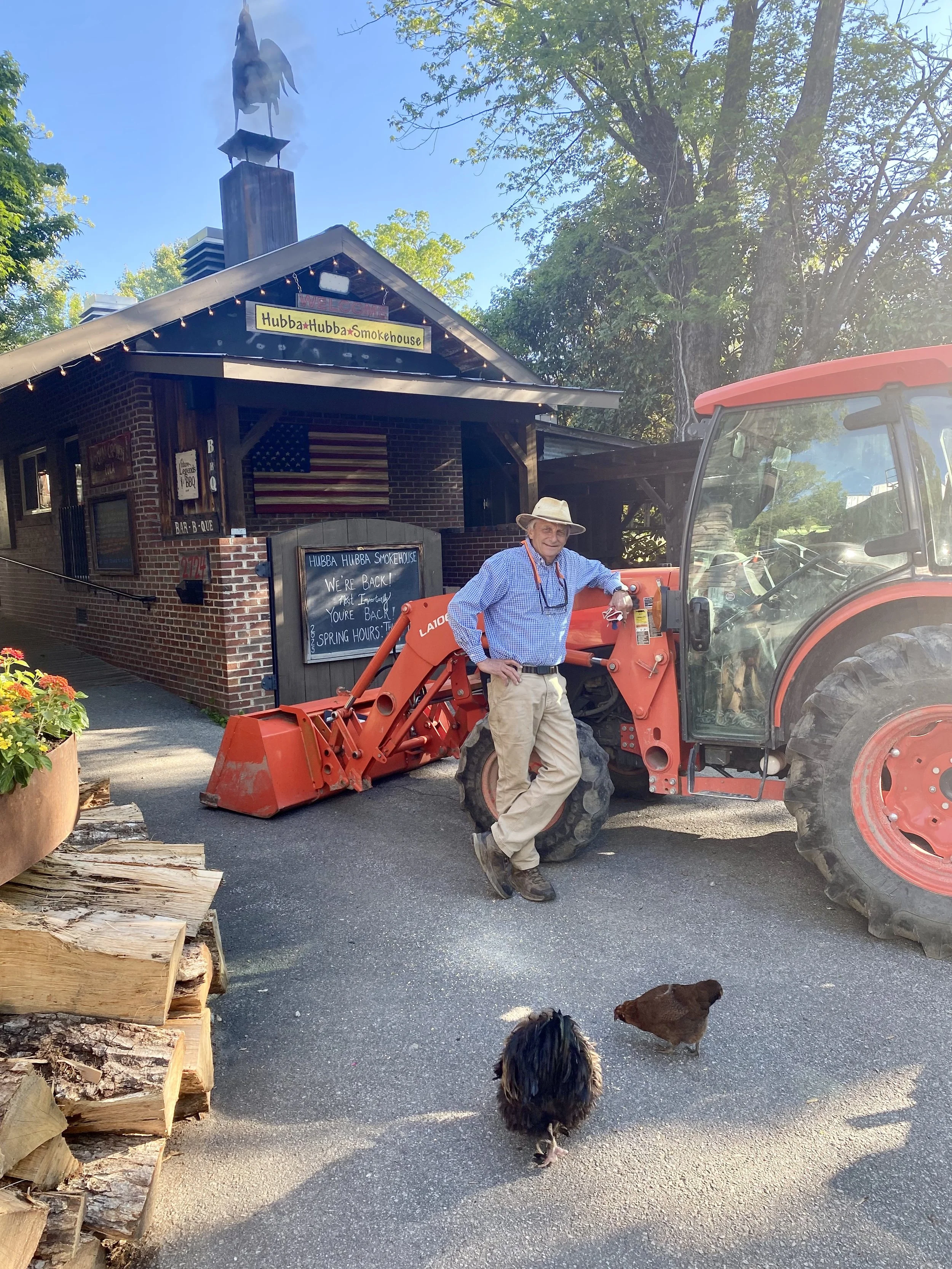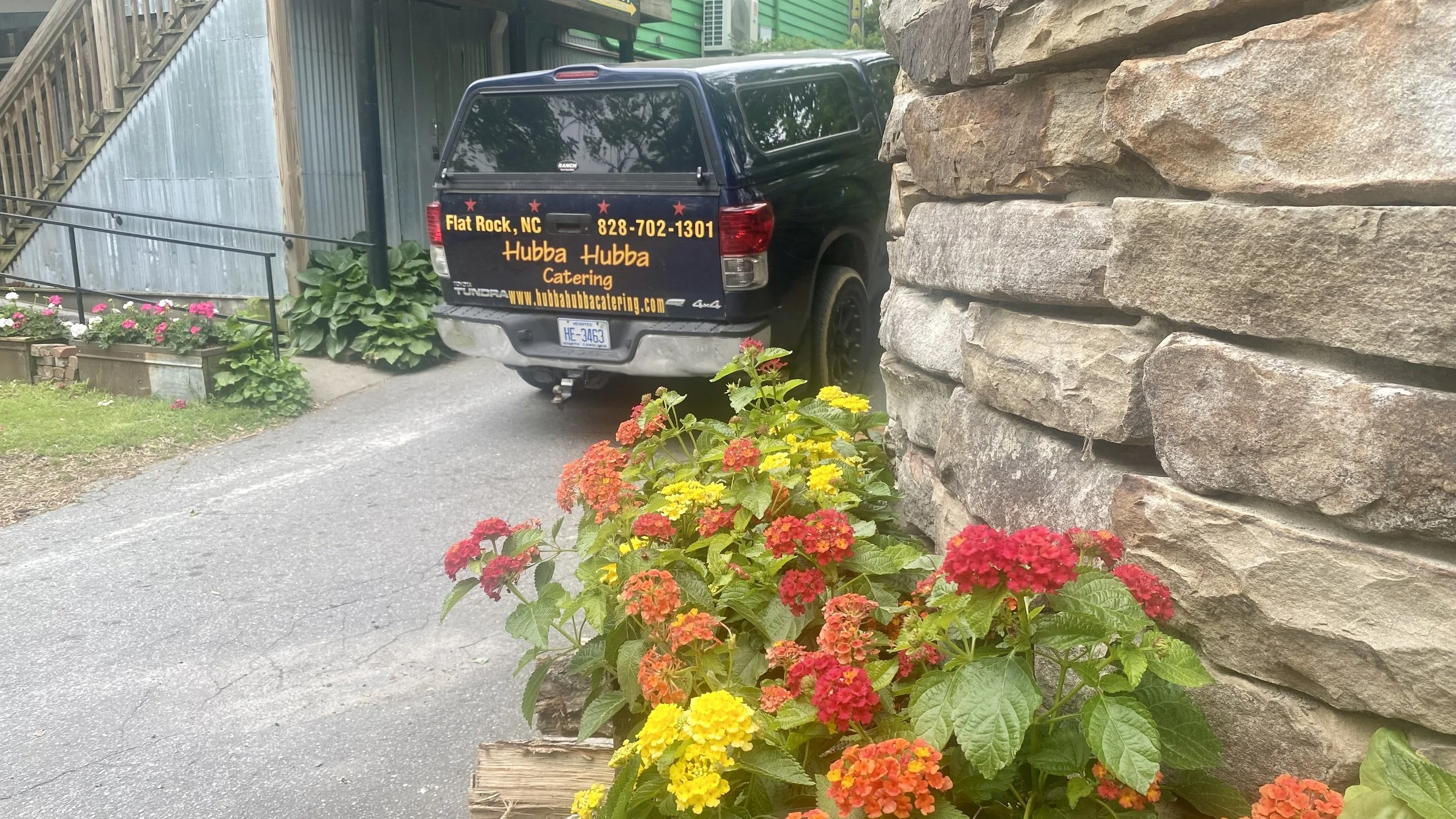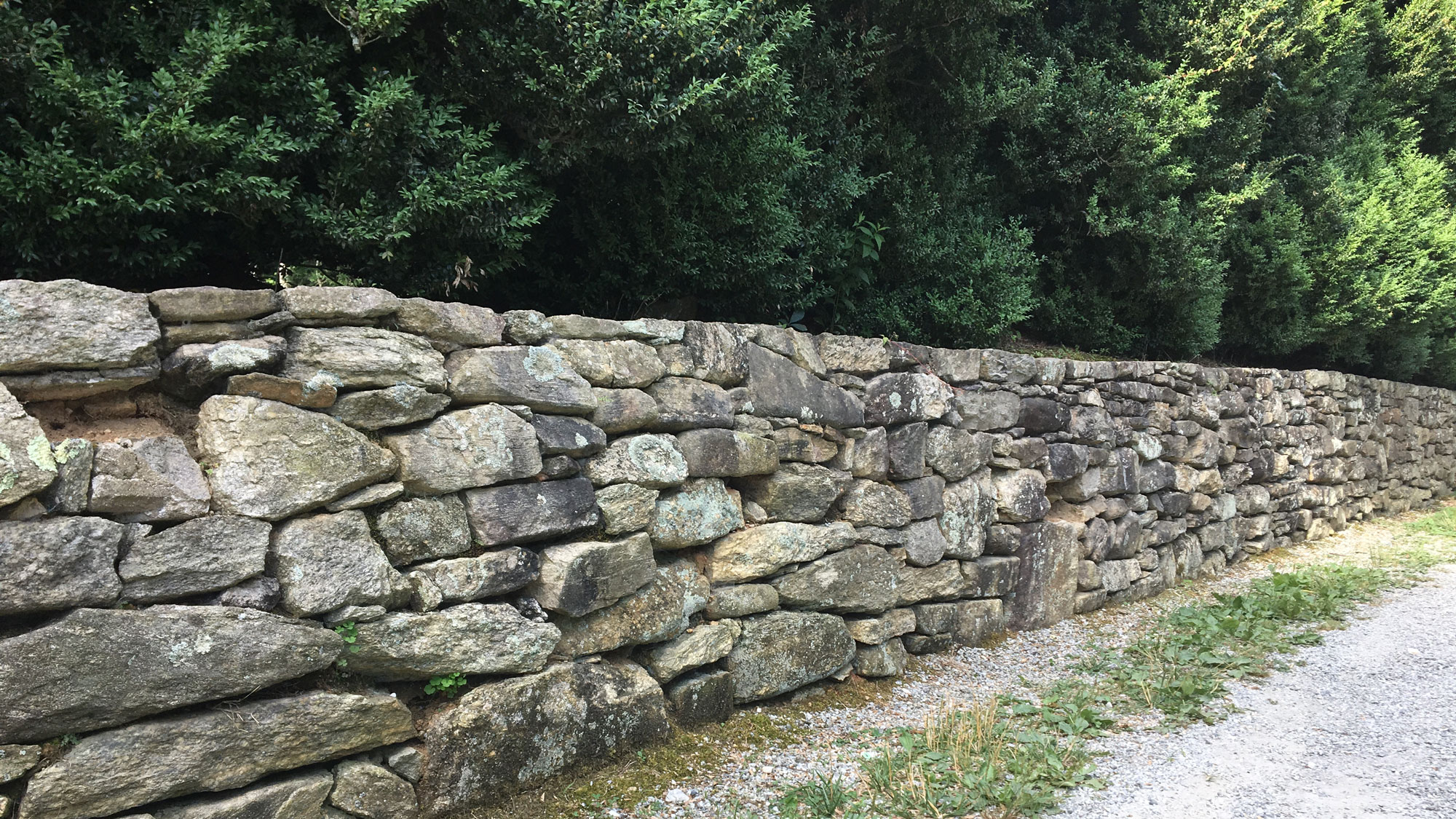Where Hospitality Blooms
/Starr Teel tending to his flowers at Hubba Hubba Smokehouse
In the heart of Flat Rock, North Carolina, nestled among a cluster of charming businesses known as Little Rainbow Row, Starr Teel has created more than a restaurant—he’s cultivated a community experience. Hubba Hubba Smokehouse, his celebrated barbecue joint, serves up more than wood-fired ribs and smoked chicken. It offers a generous helping of hospitality, a welcoming atmosphere adorned with lush flower gardens, and the intangible warmth of a place built with intention.
To understand Hubba Hubba is to understand the man behind it.
Starr’s story begins in Alabama, where he spent the first decade of his life. There, in the deep South, he absorbed the values that would become his foundation: a strong work ethic, the importance of hospitality, and a reverence for good food. Though his family eventually relocated to Missouri, the cultural imprint of the South remained indelible.
"Alabama is just home," he says. "It’s where I grew up, where my best friends were, and where I first learned what it meant to be part of a community."
Starr’s early career took him far from the South—both geographically and professionally. After college, he joined Vulcan Materials, a construction materials company that sent him to Saudi Arabia during a time of booming infrastructure projects. There, he found himself managing multi-million dollar contracts and negotiating with seasoned international project managers. “We arrived green but were quickly managing multimillion-dollar projects. You learned fast or fell behind.”
After six years in the Middle East, Starr reevaluated his future. He made a list of potential careers—testing dreams like race car driving and photography—before returning to a longstanding interest: food. He had cooked in high school and worked in restaurants during college. He eventually pursued culinary training at Le Cordon Bleu in Paris.
"Paris was magic," he says. "It taught me how to understand the nuances of a recipe, how to execute a meal with precision, and how to appreciate the art of food."
Starr during his time as a Camp Counselor
Back in the United States, the pull of his "camp roots" in western North Carolina proved irresistible. Starr returned to the area where he had once been a summer camp leader, drawn not only by the natural beauty but by the enduring values of the camp community: leadership, service, and a commitment to meaningful relationships.
In the early 1990s, he helped plan and operate the kitchen at Kenmure Country Club in Flat Rock. Later, he spent several years running the kitchen at Camp Greystone in nearby Tuxedo, transforming what had been a basic food service operation into a place of elevated experience. “We weren’t just making meals," he says. "We were building a camp within a camp, a place where kids from privileged backgrounds learned to work hard and care deeply."
This blend of entrepreneurship - equal parts hospitality and purpose - became the through line in Starr’s evolving career. In 1990, his then-wife Virginia Spigener opened The Wrinkled Egg, a beloved Flat Rock and iconic shopping experience that became the cornerstone of what would eventually be called Little Rainbow Row. In the years that followed, Starre acquired and renovated neighboring buildings, launched new businesses, and invited others to join him in crafting a village-within-a-village. Each cheerful storefront is accented with plantings that make the corridor feel more like a garden path than a shopping district.
The forerunner of Flat Rock Village Bakery came first, followed by Hubba Hubba Smokehouse, Dogwood Gifts, Honey & Salt, Campfire Grill, and most recently, Hubbaloo. Together, Starr’s collection of businesses helped transform Flat Rock’s sleepy crossroads into a charming village hub.
When Starr opened Hubba Hubba Smokehouse in 2008, it became the purest expression of his vision—a gathering space rooted in food, community, and aesthetics. Yes, the meats are smoked low and slow over wood, and the sides are made from scratch. But the real secret sauce is the setting. Picnic tables are nestled under trees, flowers bloom from every corner, and the scent of hickory smoke drifts through the air. Add in a small flock of ornamental chickens and laughing children coloring the patio with chalk, and you have a tableau of charm that fills the senses with delight.
Talk with Starr for just a few minutes and it becomes abundantly clear that his business philosophy isn’t built on spreadsheets or trends—it’s rooted in camp kitchens and summer cabins, where teamwork, humility, and shared purpose reign. And all of it is firmly rooted in a close relationship with the natural world. That ethos reverberates through every aspect of Hubba Hubba. The staff is attentive but relaxed. The food is elevated but approachable. And the space feels like it belongs to everyone.
Starr’s commitment to his gardens is not an afterthought. He is a firm believer in the power of beauty to elevate an experience. From the carefully curated gardens to the layout of the dining area, every detail is considered. "Flowers speak to you," he says. "There’s a God thing in nature, and when you’re surrounded by it—even if you’re not aware—you feel it."
Starr in The Campfire Grill Kitchen
Despite his many business successes, Starr has never grown too important for the dirt beneath his nails. On many mornings, long before the first orders come off the smoker, you’ll find him in the gardens—pruning, watering, rearranging pots with the eye of a painter and the heart of a farmer. “For all the busyness and responsibilities,” he says, “I’d rather be watering plants,” he admits with a laugh. The four acres surrounding Little Rainbow Row unfold like a living canvas—awash in blush-pink azaleas, flame-tipped tulips, heirloom roses, and cheerful Black-eyed Susans that nod in the breeze like old friends. Among these blooms, Starr finds his quiet center, hands in the soil, spirit at rest.
Starr draws inspiration from Frederick Law Olmsted’s concept of the “genius of the place”—the idea that landscapes should work in harmony with their natural surroundings. Like Olmsted, he believes in honoring what the land already offers, shaping his gardens around the terrain, sunlight, and rhythms of Flat Rock rather than imposing a rigid aesthetic. His flowerbeds, footpaths, and shaded nooks feel not just designed but discovered—restorative spaces that meet both human needs and nature’s quiet invitation to linger amidst its beauty.
Starr Teel’s flowers, then, are more than ornamental. They are his quiet tribute to what this place means—to the childhoods shaped in its woods, to the friendships born around campfires, to the retirees rediscovering joy in a town that still cares about beauty. “It’s about the experience,” Starr says. “The way a space makes you feel.” In Starr Teel’s corner of Flat Rock, the scent of barbecue mingles with blooming petals—and hospitality grows where beauty and belonging take root.
The Patio at Hubba Hubba
And so it makes perfect sense that his flower-filled corner of Flat Rock also happens to serve some of the best barbecue in the Southeast. Because for Starr, food and flowers aren’t separate pleasures—they’re part of the same offering. Both nourish, both comfort, both bring people together.
And really, what could be better than a genial conversation with beautiful flowers over a plate of tender brisket and smoked chicken at Hubba Hubba Smokehouse?
In Starr Teel’s world, hospitality blooms in every way that matters.


